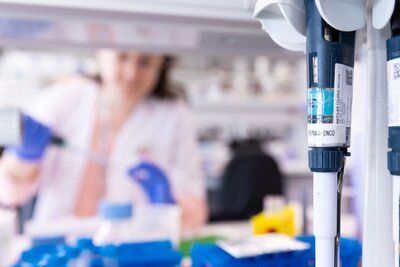News
-
Gate2Brain Receives EMA Orphan Drug Designation for Its Groundbreaking Pediatric Cancer Treatment
Gate2Brain, has reached a major milestone in the fight against pediatric brain tumors by obtaining Orphan Drug Designation (ODD) from the European Medicines Agency (EMA) for its innovative product, G2B-002.
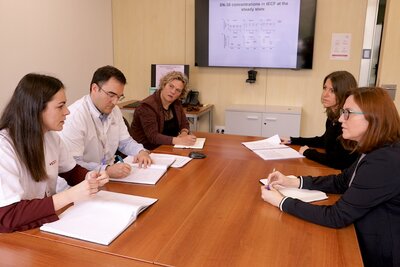
-
SJD Barcelona Children's Hospital and Institut de Recerca Sant Joan de Déu (IRSJD) consolidate their participation in the ISCiii Biomedicine and Health platforms
Members of the innovation team from the SJD Barcelona Children's Hospital and the Institut de Recerca Sant Joan de Déu (IRSJD) participated in the II Scientific Conferences promoted by the Instituto de Salud Carlos III (ISCiii), held in Lleida from October 28 to 30.
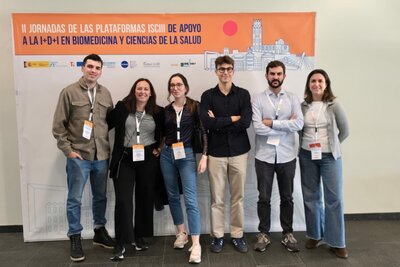
-
A drug capable of simultaneously targeting three different therapeutic targets is designed.
The study, published in the journal Bioorganic Chemistry, presents a proof of concept for this innovative triple-effect compound, which has been successfully applied to breast cancer cells. According to experts, this therapy has "high potential for the treatment of complex diseases such as cancer or diabetes.

-
Researchers discover a new promising strategy to halt the progression of liver fibrosis
The new work, published in the journal Biomedicine & Pharmacotherapy, has been led by Manuel Vázquez Carrera, head of the research group Pharmacological Targets in Inflammation and Metabolic Diseases at the Sant Joan de Déu Research Institute (IRSJD) and the Biomedical Research Centre in Diabetes and Associated Metabolic Diseases (CIBERDEM) at the University of Barcelona.

-
Research in Pitt-Hopkins at Sant Joan de Déu, a neurodevelopmental disorder
Dr. Judith Armstrong initiates a project to understand why patients with mutations in different genes present the same clinical features as Rett syndrome.
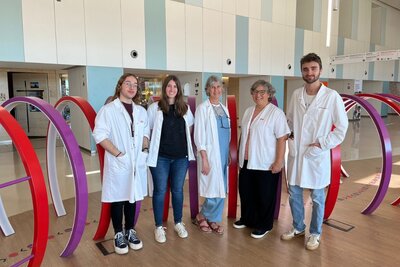
-
International travel affects gut microbiota
A collaborative study between the Institut de Recerca Sant Joan de Déu (IRSJD) and the Institut d'Investigació i Innovació Parc Taulí (I3PT) demonstrates that traveling and being exposed to new people, traditions, cultures, and unfamiliar foods can change gut microbiota and its diversity.
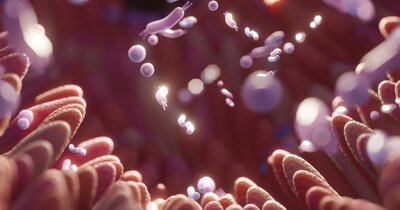
-
A Predictive Tool for Personalizing Psychosis Treatment
Dr. Susana Ochoa from the Sant Joan de Déu Research Institute · Parc Sanitari Sant Joan de Déu leads a European project to offer personalized metacognitive training for people with psychosis by developing a learning algorithm.
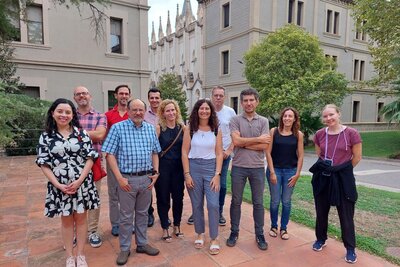
-
A potential therapeutic target has been discovered for the rare metabolic disease PMM2-CDG
The collaboration of three research groups has made it possible to identify cellular and molecular pathways affected in patients with PMM2-CDG through the development of a transcriptomic data analysis technology using patient-derived fibroblasts.
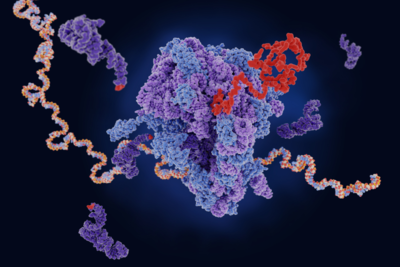
-
New discoveries about the EWS-FLI oncogene involved in the development of Ewing's tumor
Researchers from IRSJD · SJD Barcelona Children’s Hospital and IRB Barcelona have successfully developed Drosophila models expressing the EWS-FLI oncogene at varying levels, overcoming previous toxicity challenges and enabling detailed study of Ewing sarcoma's oncogenic pathways.
